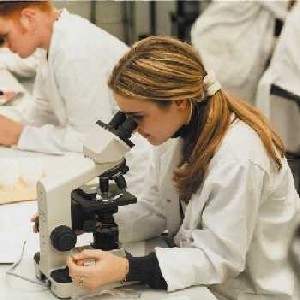This pages is primarily intended for existing students. It consists of modules available to Natural Sciences students, Joint-Honours regulations and general advice (which includes links to Departmental advice.)
The following lists the module code and the title of each module by the level of each module - clicking on the link will take you to further details listed in the Faculty Handbook.
The last digit of the module code indicates whether the module is single, double or triple. The level indicates the year in which modules are normally taken, but it is often the case that students take modules from the adjacent level beneath the year of study. Visit the Subjects page for the general overarching rules and structure.
Please note that the modules on offer and the requirements for progression can change from year to year and that the only combinations of modules that are guaranteed to fit in the timetable are those splits between the two departments on an approved Joint Honours route (MSci and BSc).
Within Natural Sciences, Biology has BSc Joint-Honours programmes with: Anthropology; Chemistry; Geography; Earth Sciences; Mathematics; Physics; Psychology. There are also the following MSci Joint-Honours programmes with: Chemistry; Physics.
In BSc students' final year, they are required to take no less than 20 credits and no more than 60 credits of Capstone Modules. These modules are denoted with
GBiology modules available to Natural Sciences students
Level 1 modules
Introduction To Physiology (BIOL1151)
Organisms And Environment (BIOL1161)
Genetics (BIOL1171)
Molecules And Cells (BIOL1281)
Fundamentals Of Bioscience Research (BIOL1321)
Level 2 modules
Immune Systems (BIOL2421)
Microbiology (BIOL2431)
Molecular Biology (BIOL2441)
Evolution (BIOL2451)
Ecology (BIOL2461)
Development (BIOL2471)
Cell Biology (BIOL2481)
Metabolism (BIOL2491)
Cell Signalling (BIOL2501)
Behaviour (BIOL2511)
Integrated Physiological Systems (BIOL2521)
Plant And Algal Physiology (BIOL2571)
Biomolecules - Structure And Function (BIOL2591)
Level 3 modules
Fieldcourse (BIOL3161)
Biology Into SchoolsG (BIOL3431)
Literature ReviewG (BIOL3451)
Advanced Cell Biology (BIOL3481)
Stress And Responses To The Environment (BIOL3491)
Advanced Topics In Development (BIOL3521)
Stem Cells And Tissue Engineering (BIOL3531)
Ecology In The Anthropocene (BIOL3541)
Conservation Biology (BIOL3551)
Advanced Topics In Ecology, Evolution Andbehaviour (BIOL3561)
Ageing (BIOL3591)
Biochemistry And Biotechnology (BIOL3601)
Crops For The Future (BIOL3611)
Biology Of Disease (BIOL3621)
Contemporary Issues In The BiosciencesG (BIOL3641)
Genomics (BIOL3651)
Science EnterpriseG (NSCI3001)
Requirements for Joint Honours (BSc and MSci Programmes)
There are 5 routes within Biology: Ecological route, Cell Biology with Physics route, Cell Biology with Chemistry route, Biology and Psychology route and Biology and Mathematics route.
Biology and Mathematics
Biology and Psychology
Cell Biology with Chemistry
Designed to be timetabled with Chemistry.
Year 1
| 40 credits: Genetics (BIOL1171) and Molecules And Cells (BIOL1281) |
Year 2
| 60 credits: Molecular Biology (BIOL2441), Metabolism (BIOL2491) and Cell Signalling (BIOL2501) |
Year 3
| 60 credits: To include Stress And Responses To The Environment (BIOL3491) and Biochemistry And Biotechnology (BIOL3601) |
Cell Biology with Physics
Ecological
Designed to be timetabled with Anthropology, Earth Sciences and Geography.
Year 1
| 40 credits: Organisms And Environment (BIOL1161) and Genetics (BIOL1171) |
Year 2
| 60 credits: Evolution (BIOL2451), Ecology (BIOL2461) and Behaviour (BIOL2511) |
Year 3
| 40 credits: Modules taken from Ecology In The Anthropocene (BIOL3541); Conservation Biology (BIOL3551); Advanced Topics In Ecology, Evolution Andbehaviour (BIOL3561). |
Advice for progression and other aspects
Department advice:
HandbookNatural Sciences advice
Year 1
| Anthropology/Earth Sciences/Mathematicians/Geography: Should take Genetics (BIOL1171) and Organisms And Environment (BIOL1161). If a third module is required then Introduction To Physiology (BIOL1151) is recommended.
Chemistry/Physics: Should take Genetics (BIOL1171) and Molecules And Cells (BIOL1281). If a third module is required Introduction To Physiology (BIOL1151) is recommended.
Psychology: Should take Genetics (BIOL1171) and Introduction To Physiology (BIOL1151). If a third module is required Organisms And Environment (BIOL1161) is recommended.
The Year 2 module Research Skills For Biosciences (BIOL2581) and Year 3 modules Research Project (BIOL3571) and Workshop (BIOL3581) (which are research led/capstone modules) are unavailable to Natural Sciences students.
Progression from: BIOL1171; BIOL1161; BIOL1151; BIOL1281; BIOL2581; BIOL3571; BIOL3581. |
Year 2
| Students not following an Ecology pathway are strongly advised to take Molecular Biology (BIOL2441).
Natural Sciences students are unable to take Biological Enterprise (BIOL3441) and instead are guided towards Science Enterprise (NSCI3001).
Progression from: NSCI3001; BIOL2441; BIOL3441. |
Year 3
| Ecological: Students following the Ecological route can take Fieldcourse (BIOL3161).
MSci Biology and Chemistry:You are recommended to Literature Review (BIOL3451).
Progression from: BIOL3161; BIOL3451. |
For more information about the Natural Sciences degree programme, please contact:
Prof James Blowey
Deputy Head of Faculty
Faculty of Science Office
Level 3 Chemistry Building
Durham University
DH1 3LE
UK
Email: Natural Sciences Director
WWW: Natural Sciences home page
The Natural Sciences web pages are maintained by James Blowey



